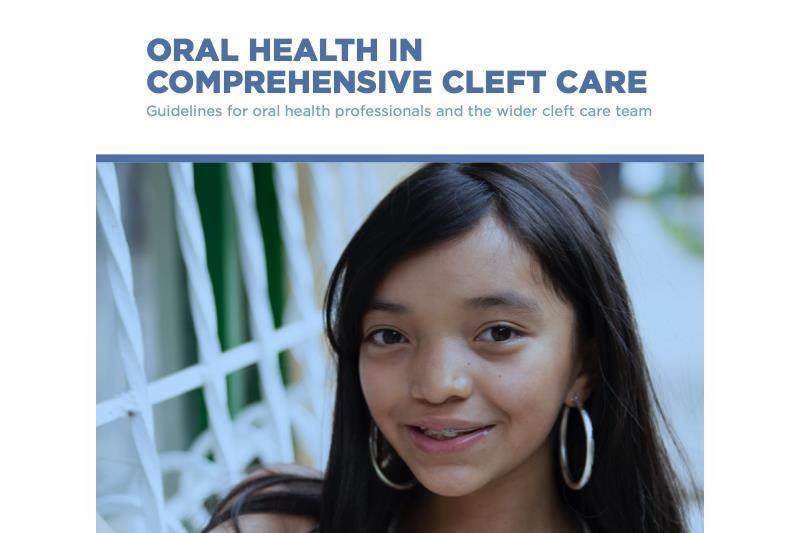Focused dental care should be integrated into cleft care
Published: 25/09/2020
FDI World Dental Federation (FDI) and Smile Train are releasing new Oral Health in Comprehensive Cleft Care guidelines to empower local cleft teams with training and resources to improve oral health.
Around the world, a baby is born with a cleft about every three minutes. Many children with clefts have severe difficulties eating, breathing, hearing, and speaking. What's more, even after having cleft surgery, these children often have a higher risk for tooth decay, gum disease, and other oral health issues.
The diverse team of healthcare providers caring for a patient with a cleft have an important role to play in supporting that person's oral health and overall well-being. This is why oral health nonprofits FDI World Dental Federation (FDI) and Smile Train have joined forces with support from GSK Consumer Healthcare to launch guidelines for oral health professionals and the wider cleft care team to help reduce oral disease and improve oral health in people born with clefts.
Through the release of these new guidelines, FDI and Smile Train hope to empower local cleft teams with training and resources to improve oral health and provide comprehensive oral healthcare. To learn more about the guidelines, providers are encouraged to join the FDI Oral Health Campus webinar on 29 September at 15:00 BST where they will be released for the first time. You can register for the webinar here.
In this webinar, the panel of FDI and Smile Train experts will present the Oral Health in Comprehensive Cleft Care guidelines, discuss the oral health challenges that people with treated or untreated clefts often face, and offer clear solutions to optimize patients' well-being, ensuring that they're able to eat, speak, breathe, and swallow.
Rehabilitation and care of children with clefts often involves the core specialties of nursing, plastic surgery, paediatric dentistry, speech therapy, and orthodontics. All members of this cleft care team can contribute to reinforcing the patient's oral health – ideally, by following a set of agreed and adopted protocols to ensure good interdisciplinary communication.
'Children with clefts suffer disproportionally from oral disease, which can not only affect their overall health and well-being, but also their long-term development,' said FDI President Dr Gerhard K. Seeberger. 'Ensuring that the cleft care team is trained to help prevent oral disease is so important. FDI is delighted to share these new guidelines, which we hope will empower the whole team to deliver consistent, quality care to all patients living with clefts.'
'We aim to integrate oral health into the care pathway for children with clefts,' said Smile Train President and CEO Susannah Schaefer. 'Regular dental care for children with clefts is essential to help manage their increased risk for oral disease. It's important for healthcare providers and caregivers to recognize the signs of oral diseases and know how to prevent them. This is the only way to enable people with clefts to enjoy the highest possible quality of life.'
Author: Julie Bissett












.jpg?width=150&height=100&scale=canvas)
